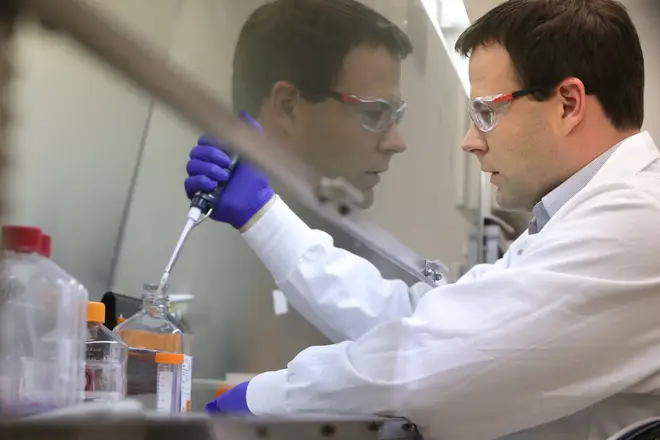
Shelagh Fogarty 1pm - 4pm
28 April 2020, 14:12

Vaccine trials: how do they work and when could we see results?
How do the vaccine trials work and when can we expect to see results? LBC puts these questions to Oxford Vaccine Group's leader Professor Andrew Pollard.
Two volunteers have been vaccinated for Covid-19 and the Oxford Vaccine Group are currently working out logistics to enable vaccination for more volunteers, Professor Andrew Pollard told LBC.
The vaccine task-force are confident to pursue this vaccine because in animals, the UK vaccine "induces good immune responses" and if encouraging responses are seen in animals "often that is the case in humans," he said.
LBC's Matt Frei asked when scientists may expect to see the results.
"The question really is how quickly after we've vaccinated people do cases start occurring in the community. If we have lots of transmission of virus, we really could know an answer about whether the vaccine works in a few months.
"If the lockdown means there's very little transmission over the next few months, it could take very much longer, we will know eventually," Professor Pollard explained. He did remind listeners that there is still transmission at the moment, even during lockdown, but it is difficult to predict how many cases there will be amongst volunteers.

"Some of our volunteers are health workers and they are much more at risk so that may increase the chance of being able to see an effective result of the vaccine. But I can't say for certain when we'll know. Easing lockdown...would mean that we get an earlier answer but it would put the population at risk of severe disease," he said.
"The virus is not going to go away so we will know eventually - it just may take longer if there's very little transmission."
The Professor explained that volunteers will be separated into two groups: one group will get the new Covid-19 vaccine and the other group will get a control vaccine, which is a meningitis vaccine and is no protection against coronavirus.
"The idea is that as we go forwards, our volunteers will be exposed in the community just through natural transmission of the virus and we expect that there will be cases over the months ahead.
"If the vaccine works well those cases will be largely in the control vaccine group, which will allow us to make an estimate of how well the vaccine actually prevents disease," he said.
The reason the control group will get a meningitis vaccine as opposed to a placebo is because a meningitis vaccine will cause some of the same side effects expected to present from the Covid-19 vaccine, he said. If a patient had no symptoms, they'd know they were given a placebo which could alter their behaviour and affect the results.
Professor Pollard told Matt that the UK's vaccine task-forces are keeping in close contact with Chinese vaccine groups as the trial models are quite similar. They are slightly ahead, having already done trials with 108 people and then another 500.
10:43:02